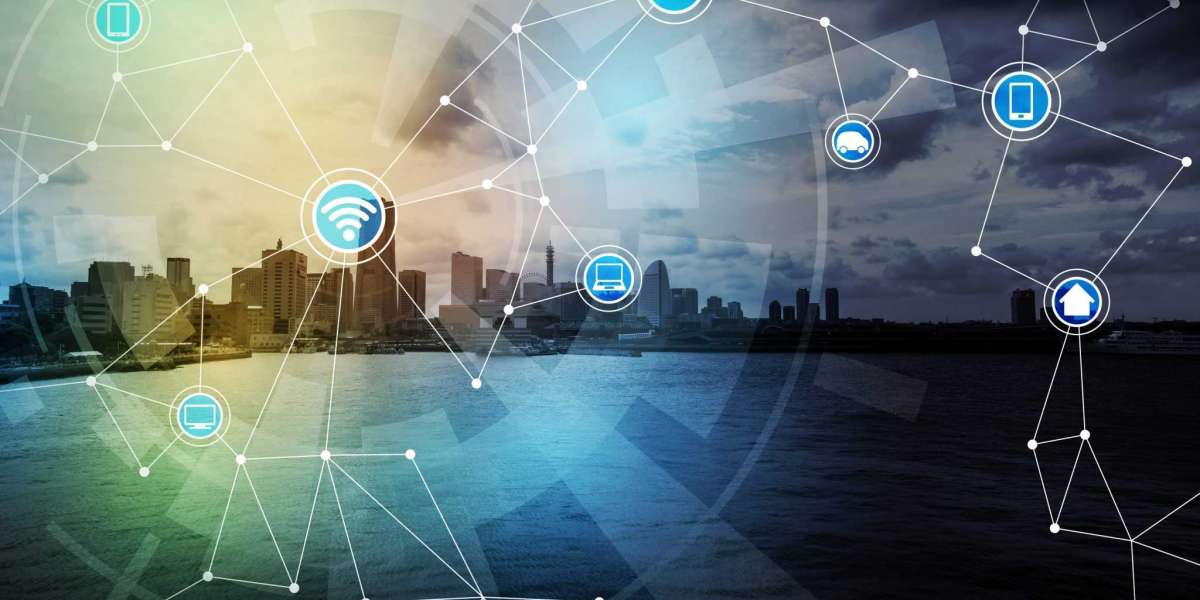In today's fast-paced world, technology has become an integral part of our daily lives. From smartphones to artificial intelligence, technology has revolutionized the way we communicate, work, and live. While there are ongoing debates about the impact of technology on society, there are several compelling reasons why technology is good for society. In this article, we will explore the positive effects of technology on various aspects of our lives and how it has contributed to the betterment of society.
How Technology Enhances Communication
Communication plays a vital role in connecting people and fostering relationships. Technology has significantly improved communication by breaking down barriers of distance and time.
Instantaneous Communication through Smartphones
Smartphones have revolutionized communication by providing a portable and convenient way to stay connected. With just a few taps, we can instantly send messages, make video calls, and share multimedia content with anyone across the globe. This ease of communication has brought people closer and facilitated the exchange of ideas, information, and emotions.
According to a study conducted by Statista, the number of smartphone users worldwide is projected to reach 3.8 billion by 2021[^1^]. The widespread adoption of smartphones has enabled individuals to stay connected with their loved ones, collaborate with colleagues, and access valuable resources from anywhere, at any time.
Social Media: Connecting the World
Social media platforms have transformed the way we interact with others and share our experiences. Websites like Facebook, Twitter, and Instagram have created virtual communities where people can connect, exchange thoughts, and build relationships.
These platforms have not only bridged the gap between individuals but have also become powerful tools for social and political movements. The Arab Spring, for instance, was fueled by social media, enabling people to organize and voice their concerns on a global scale.
Furthermore, social media has become an effective medium for businesses to engage with their customers and promote their products or services. It has opened up new avenues for entrepreneurs, creating opportunities for growth and economic development.
Technology in Education: Unlocking Knowledge
Education is the foundation of society, and technology has revolutionized the way we learn and acquire knowledge. The integration of technology in education has opened up new possibilities and made learning more interactive, accessible, and engaging.
E-Learning: Learning at Your Fingertips
E-learning platforms have made education accessible to people worldwide. Online courses, webinars, and educational videos have enabled individuals to learn at their own pace and from the comfort of their homes.
The COVID-19 pandemic further highlighted the importance of e-learning as traditional classrooms shifted to virtual learning environments. Students were able to continue their education remotely, ensuring continuity in their academic journey.
E-learning has also provided opportunities for individuals who face geographical or financial constraints to access quality education. Platforms like Coursera, Khan Academy, and edX offer a wide range of courses from prestigious universities, empowering learners to enhance their skills and pursue their passions.
Interactive Learning Tools
Technology has introduced interactive learning tools that make the learning process more engaging and effective. Virtual reality (VR) and augmented reality (AR) have transformed the way students perceive and interact with information. For example, medical students can now simulate surgeries through VR, providing a realistic training experience.
Additionally, gamification in education has gained popularity, making learning enjoyable and immersive. Educational games and quizzes stimulate students' cognitive abilities and foster a deeper understanding of concepts.
Technology and Healthcare: Saving Lives
Advancements in technology have had a profound impact on the field of healthcare. From diagnosis to treatment, technology has revolutionized the way medical professionals operate and has improved patient outcomes.
Precision Medicine: Personalized Healthcare
Precision medicine, enabled by technology, tailors medical treatment to an individual's specific characteristics, including their genetic makeup, lifestyle, and environmental factors. This approach allows healthcare providers to develop personalized treatment plans that are more effective and have fewer side effects.
By leveraging technologies like genetic testing, data analytics, and machine learning, medical professionals can make accurate diagnoses, identify potential risks, and prescribe targeted therapies. This has led to improved patient outcomes and reduced healthcare costs in the long run.
Telemedicine: Expanding Access to Healthcare
Telemedicine has emerged as a game-changer, especially in remote areas or during emergencies. It allows patients to consult with healthcare professionals remotely, eliminating the need for physical visits. Through video calls, patients can discuss their symptoms, receive medical advice, and even get prescriptions.
This technology has proved particularly beneficial during the COVID-19 pandemic, where physical distancing measures were necessary. It ensured that individuals could receive medical attention without putting themselves or others at risk.
According to a study published in the Journal of Medical Internet Research, telemedicine has the potential to significantly reduce healthcare costs and improve patient satisfaction[^2^]. It has the power to bridge the gap between patients and healthcare providers, especially in underserved areas.
Enhancing Efficiency and Productivity
Technology has transformed the way businesses operate, making processes more efficient and driving productivity. From automation to data analysis, technological advancements have streamlined operations across various industries.
Automation: Working Smarter, Not Harder
Automation has revolutionized industries by replacing repetitive and mundane tasks with technology-driven solutions. This allows employees to focus on more complex and creative endeavors. For example, in manufacturing, robots have taken over repetitive assembly line tasks, enabling workers to focus on quality control and innovation.
Automation has also improved efficiency and accuracy in sectors like finance, where algorithms and artificial intelligence (AI) are employed to analyze vast amounts of data and make informed decisions. This has led to faster and more accurate financial transactions, reducing the risk of errors and fraud.
Collaboration and Communication in the Workplace
Technology has transformed the way teams collaborate and communicate in the workplace. With tools like project management software, video conferencing platforms, and instant messaging apps, teams can work together seamlessly, regardless of their physical locations.
Cloud-based collaboration tools like Google Docs and Microsoft Office 365 allow multiple users to work on the same document simultaneously, fostering real-time collaboration and eliminating version control issues. This has revolutionized the way teams collaborate on projects, enhancing productivity and efficiency.
Frequently Asked Questions (FAQs)
Q: How has technology improved transportation?
A: Technology has significantly improved transportation by introducing innovations like electric vehicles, ride-sharing platforms, and smart traffic management systems. Electric vehicles reduce carbon emissions, contributing to a cleaner environment. Ride-sharing platforms have transformed the way people commute and reduced congestion on the roads. Smart traffic management systems leverage data and technology to optimize traffic flow, reducing travel time and fuel consumption.
Q: Does technology have a negative impact on employment?
A: While technology has led to job displacement in certain industries, it has also created new job opportunities. Technological advancements have given rise to new fields like data science, AI, and cybersecurity. Automation has eliminated some jobs but has also created new roles that require human intervention and creativity. It is crucial to adapt to the changing job landscape and acquire the necessary skills to thrive in a technology-driven world.
Q: Does technology contribute to social isolation?
A: Technology, when used excessively or inappropriately, can contribute to social isolation. Excessive use of social media or online gaming may lead to individuals spending less time interacting face-to-face. However, technology also provides avenues for social connection. Video calls, messaging apps, and social media platforms allow people to maintain relationships across distances. It is essential to strike a balance and use technology in a way that enhances, rather than hinders, social interactions.
Q: Is technology accessible to everyone?
A: While technology has become more accessible over the years, there are still barriers that limit access for certain individuals or communities. Factors like affordability, digital literacy, and infrastructure can impact technology adoption. Efforts are being made to bridge this digital divide through initiatives that provide affordable devices, digital skills training, and improved internet connectivity in underserved areas.
Q: What are the ethical concerns associated with technology?
A: Technology presents several ethical concerns that need to be addressed. Issues like data privacy, security breaches, AI bias, and the impact of automation on employment raise ethical questions. It is crucial for society to have robust frameworks and regulations in place to ensure responsible use of technology and mitigate any potential harm.
Q: Can technology solve societal challenges?
A: Technology has the potential to address societal challenges and create positive change. From renewable energy solutions to healthcare innovations, technology can contribute to sustainable development. However, it is important to recognize that technology alone is not a panacea. It should be integrated with social, economic, and environmental considerations to create holistic solutions.
Conclusion
Technology has become an integral part of our society, and its positive impact is undeniable. From enhancing communication and revolutionizing education to saving lives in healthcare and driving efficiency in businesses, technology has transformed various aspects of our lives for the better. While there are challenges and ethical concerns associated with technology, it is crucial to leverage its potential and harness its power to create a more inclusive, connected, and prosperous society.



